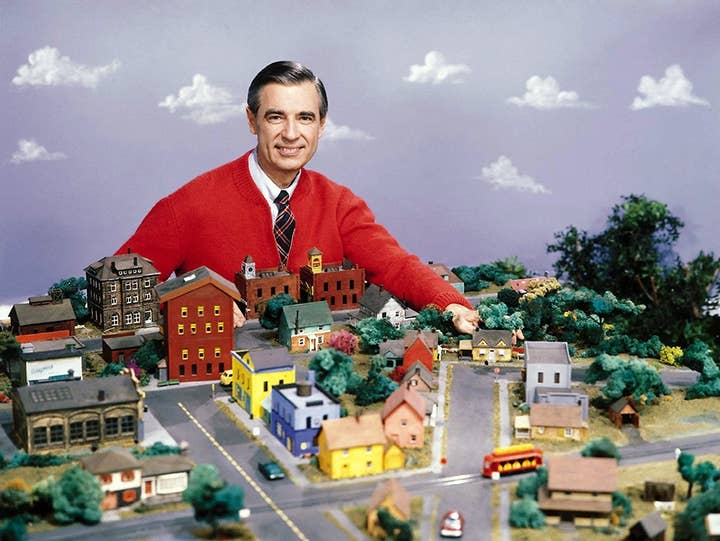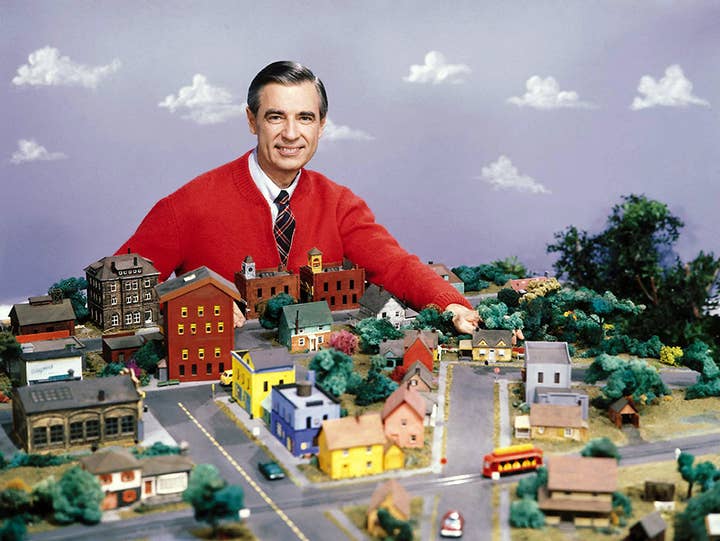(Religious Game) Developer or Religious (Game Developer)?
DLC: Hypnospace Outlaw's Jay Tholen shares how faith influences his work, Double Fine talks about new consoles, and Eastshade's Danny Weinbaum says devs can stagnate in AAA
From time to time, there are interesting bits from our interviews that don't really fit well into the rest of the story, but are still worth reporting. Rather than relegate them to the trash bin of unpublished work, we'd like to repackage them into columns intended to provide additional insight on a variety of topics. While the exact format of these columns will change from entry to entry, we will publish them under the banner of 'DLC.'
When I was preparing for an interview with Hypnospace Outlaw developer Jay Tholen, I noticed he referred to himself as a "Jesus person" in his Twitter bio. While I'd seen no shortage of people touting their Christian faith on social media in the past, it struck me as a little unusual for a game developer to be that forward about it.
I asked Tholen if wearing his Christianity on his sleeve like that had ever drawn hostility.
"I've experienced some weirdly pointed or heated questions sometimes at events when someone finds out," he said. "But I think that's more a reaction to what they assume I might be like based on the behavior of my fellow believers, or whatever. So I can't blame anyone for having that kind of reaction.
"I don't want to leave someone worse than they were before after having played my game"
Jay Tholen
"I don't know if I've experienced too much of that, and usually after a little conversation it's cool. I've seen some forum posts around. With my last game, Dropsy, people would be talking about it and someone says, 'Oh I hear it's a Christian thing; I don't want to play something like that.' And I'm like, 'No! You don't get it!' But there's not too much hostility I guess."
While he doesn't want his work to be thought of as "a Christian thing," Tholen says his faith underpins a lot of what he creates.
"I want to say something good," he said. "I don't want to leave someone worse than they were before after having played my game."

One of the inspirations for Tholen's approach is Fred Rogers, who was an ordained Presbyterian Minister and iconic host of the Mister Rogers Neighborhood children's TV program. The show itself was secular, but clearly reflected values Rogers would have identified as Christian.
"As a person who's a little bit of a theology dork, you can definitely see these times where he's trying to express some sort of theological concept through very basic, plain language while talking to a kid," Tholen said. "It blows my mind how he's able to do that. I'm like, 'Oh yeah, wink wink Mister Rogers, I know what you're getting across here.' But I'm inspired by his belief in inherent human worth and just the way he seemed to not be different in his real-life persona... He was just a really good example of a Christian, and the things he created I think also carried that well. I hope that's a model for the kind of stuff that I make too."
Who Needs New Consoles?
With E3 set for next week, now is traditionally the time for the industry to start getting irrationally excited about new console hardware. But this year might be a bit different.
"We're never limited creatively by the hardware"
Tim Schafer
For one thing, Sony is skipping the show, so even though it's already announced some details of a successor to the PlayStation 4, we wouldn't expect to hear anything further about it at the show. For another, Nintendo has already said it won't be showing off new hardware. At least there's Microsoft, which will reportedly be "going big" with its streaming ambitions that no doubt will play a key role for its next console.
With a new generation around the corner, we asked Double Fine Productions Tim Schafer back at the DICE Summit how he felt about new hardware whenever the console cycle turned over. He said it was always exciting as a consumer, but from a developer standpoint, he mostly wanted to be on as many of them as possible as early as possible.
"We're never limited creatively by the hardware," Schafer said. "Even though some people would say they were, I never felt limited by the hardware. I think we're just limited by the [extent] to which we can explore our own minds for creative ideas."
He noted that the march of progress has also changed the way he thinks about consoles over time.
"The first 10 years of my career was all PC games," Schafer said. "Monkey Island through Grim Fandango were all primarily PC games. And I remember being so sick of updates, driver bugs, worrying about people's frame rate because they have the wrong sound card and stuff like that. It was, 'I can't wait to work on consoles because everything will be so solid and your game will be playable forever.' And now a lot of our games are not playable because they're on a console that's gone, or there are still updates that might break stuff, old Apple operating systems and such. All those same frustrations are still there."
How To Pick A Partner
At the same show, we talked briefly with Double Fine's Greg Rice about the company's indie publishing label Double Fine Presents. It's been about five years since the label started up, and Rice acknowledged that along the way, the studio has tweaked its way of thinking about potential projects for the label.
"I think it's easy to get wrapped up in all the industry trends and try to be thinking a lot about the marketplace, what's working, what's hitting, what could be coming down the road," Rice said. "Ultimately it's easy to get wrapped up in that and forget that things change so quickly. The only thing that sticks around is that people want to see something they haven't seen before."
It's not just about the games, either. Rice said Double Fine also picks games for the label based on how they feel about the developers on a personal level, and whether there's a good fit for their interests and passions.
"I think it's a lot more clear now that we're looking for games with strong identities, people who actually understand what they're trying to say with their game and are saying something really unique and different," Rice said. "And also people we just are inspired by and want to be around and support."
AAA Inefficiency
When I spoke with Eastshade developer Danny Weinbaum about why he made the jump from AAA environment artist to indie developer, part of the draw was what he felt he could do on his own. Another part that didn't make it into that article was what he felt he couldn't do in the AAA space.
"There is the grind in AAA, and I don't know if it's AAA necessarily," he said. "It might just be working for a team of a certain size that happens to be over a threshold, but you're just a cog in a wheel. And that's how it has to be. Obviously, that's how these crazy-huge amazing games get made. But you don't really have much ownership over anything, and you're pigeonholed into doing what you're good at."
Weinbaum quickly added that's a sensible way to go about development when you have a team of the usual AAA size, as "it would be chaos" not to rely on a significant chunk of a team that big to serve as team players following orders. Unfortunately, the very thing that keeps that system working ensures those people serving as cogs aren't fulfilling their potential.
"I personally wasn't growing a lot in other places, which is a consequence of the way it's done. But really, I just wanted to make my own game."









